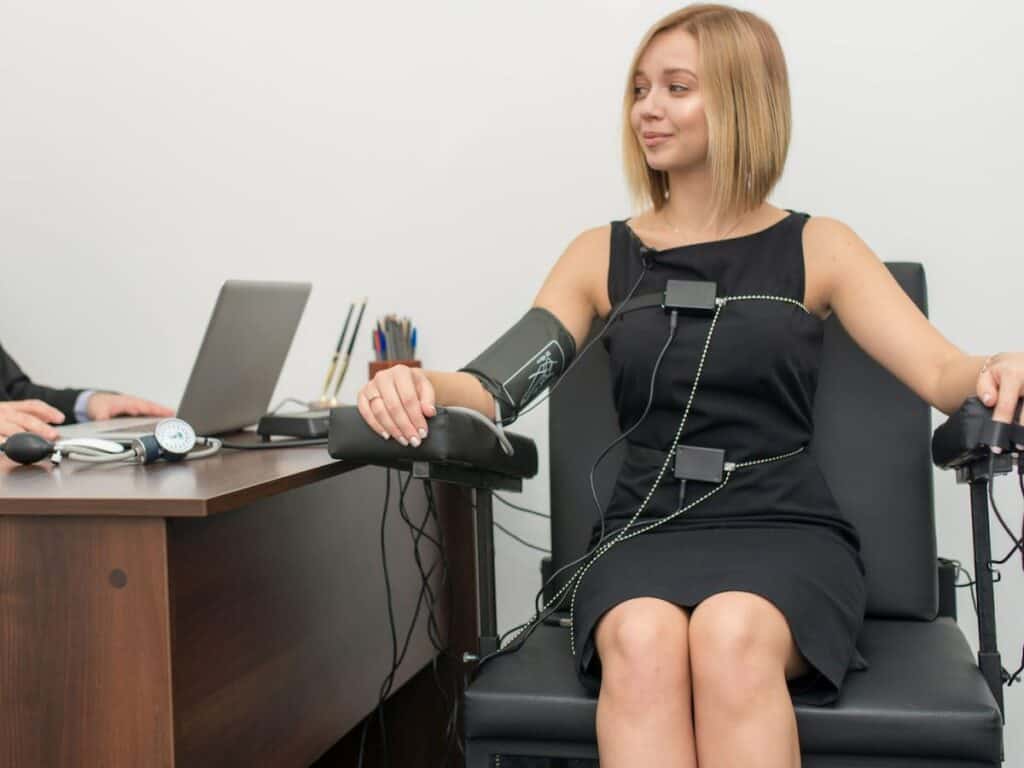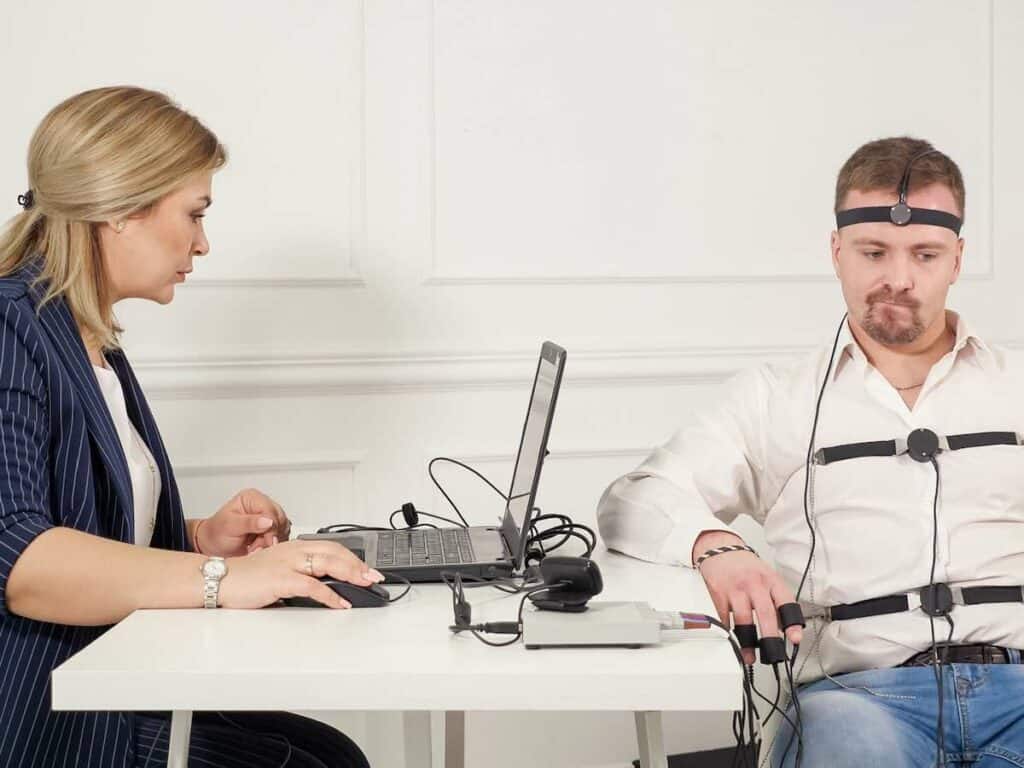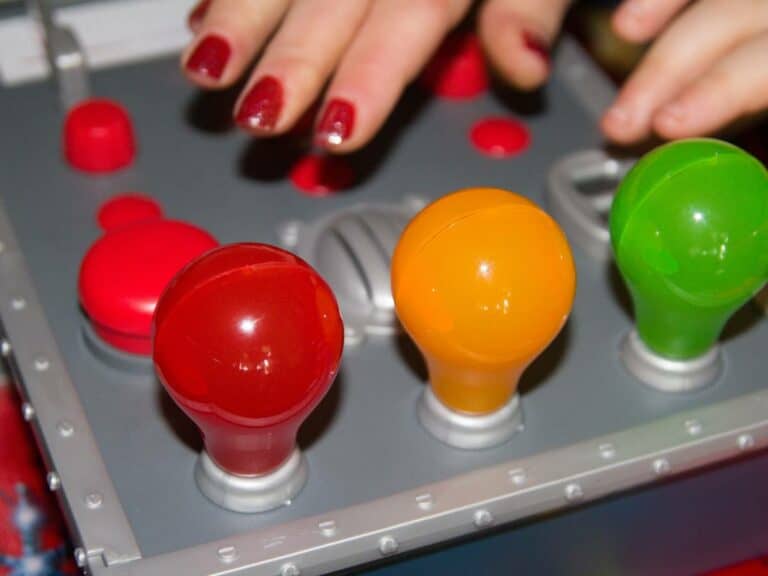Infidelity Polygraph Tests Explained
The love you have for another is considered one of the strongest human emotions, which can be categorized into not less than 27 different categories. And if it gets broken, love is usually irreparable.
Will undergoing polygraphy help married couples or partners know whether to save or end the relationship?
Depending on who you ask, a polygraph exam can be up to 90% accurate. This means that there’s a good chance that an infidelity polygraph test can help one who is in a shaky marriage or partnership decide which direction to take. With polygraphy, a person whose spouse or companion may have cheated or may be cheating can have the answers and peace of mind, too.
Feeling that your husband, wife or partner isn’t telling you all? Being accused of cheating on your other half?
Read this post to learn what an infidelity polygraph test is. Is it the right type of polygraphy for the situation? How does it work? How much does it cost? Is it admissible in family court?
These questions and more will be answered below.

How Long Does an Infidelity Polygraph Test Take?
A lie detector test for cheating usually takes anywhere from 15 to 30 minutes. Some examinations can be only 5 minutes long to complete, depending on the number of questions asked — some infidelity polygraph tests are customizable. A standard polygraph exam, on the other hand, is usually 2 to 3 hours long.
There are 3 distinct phases to a lie detector test:
Pre-test
During this part of the polygraph examination, the examiner explains to the examinee how the polygraph test works and what questions are asked. And speaking of which, it’s during the pre-test phase that the examiner develops the questions. It’s also during this time when the examinee is asked about medical conditions and drugs taken.
Test phase
Also sometimes known as the in-test phase, this is when the lie detector test proper takes place. Needless to say, the examiner asks the examinee all kinds of questions, all of which are answerable with a yes or no. It’s also during the test phase when the examinee is strapped to the polygraph machine.
Post-test
As the name suggests, the post-test phase is the part after the examination proper where the polygraph examiner collates and analyzes data collected by the lie detector instrument. There is no need for the polygraph examinee to be around during this phase — all he or she has to do is to wait for the results to arrive at the doorstep.
Because an infidelity polygraph test usually involves fewer questions than a standard lie detector examination, the time it takes to complete the entire process is shorter, usually no more than 30 minutes.
No matter the kind of polygraph test, the result usually becomes available after 24 hours.
How Much Does It Cost to Have an Infidelity Lie Detector?
In the US, a standard polygraph test can cost anywhere from $500 to $900. Depending on the complexity of the examination, some can be as expensive as $2,000. On the other hand, an infidelity lie detector test is simpler and thus generally cheaper. It can cost anywhere from $300 to $500.
When it comes to the accuracy of a polygraph test, opinions are divided. It depends on whether you are asking a proponent or a critic of a lie detector test.
But the general consensus is that the examination doesn’t come cheap.
Well, it depends on what sort of testing you require — some of them, in particular those that involve a shorter pre-test and fewer questions asked, are more affordable. Case in point: lie detector for infidelity. It can be rare for you to come across one whose asking price goes past $500. Some of them can be as low as $200 to $300.
It’s a good idea, however, to steer clear of a very cheap infidelity polygraph test as it may involve the use of a second-rate machine and an inexperienced and non-licensed polygraph examiner.

Questions Asked During an Infidelity Polygraph
Questions asked during an infidelity lie detector test are those that center on circumstances that have warranted the exam. Commonly, only 3 questions are asked, but more can be involved at times. Besides relevant questions, the examiner also asks control and irrelevant questions.
One of the things that can make undergoing a polygraph test for cheating nerve-racking is the fact that questions for determining one’s infidelity will be asked.
It’s not uncommon for the number of questions to be fewer than when undergoing a standard polygraph.
Some providers ask only up to 3 questions, while others may ask anywhere from 8 to 10 questions. In many instances, it all depends on the customized examination preferred by the client. Besides the main questions or relevant questions, the examinee will also have to answer a few different ones that typically have nothing to do with cheating.
They are asked in order for the examiner to establish the examinee’s baseline readings when in a relaxed mode when being truthful and in a stressed mode when being deceitful.
Is the Result of a Cheating Lie Detector Admissible in Court?
Polygraph test results are not admissible in many jurisdictions.
In states where polygraph tests are admissible in court, both parties have to agree to use the results before they can serve as evidence. However, a lie detector test may be allowed in family courts when allegations of child abuse are involved.
Earlier, we mentioned that the accuracy of a polygraph exam for infidelity can be as high as 96% to 97%. It will all depend on which scientist or service provider you will ask. The result of a lie detector test, due to this, is usually not admissible in most courts in the US. In jurisdictions where it has admissibility, both parties have to first agree to use it.
One of the most serious accusations that can be made against parents is child abuse.
After all, most federal districts use lie detector tests in order to make sure that sex offenders are complying with the requirements of their treatment or supervision program.
Based on the standards and guidelines, it’s recommended for sex offenders to undergo a polygraph exam once every 6 months. But it adds that there should be variability for those in advanced levels of treatment. The frequency of lie detector tests for juvenile sex offenders, meanwhile, is left in the hands of the multidisciplinary team.
Just Before You Seek a Polygraph Test for Infidelity
It’s not uncommon for some private companies and all government agencies to request job applicants to undergo a polygraph test as a part of the pre-employment process. It’s also quite common for many couples to seek a lie detector exam when cheating-related doubts and fears come into being.
Provided that it’s conducted properly, a polygraph test for infidelity can help a couple decide so much better between giving the relationship another try of filing for a divorce.
The first step is determining whether or not there’s unfaithfulness and betrayal involved.
Ensure that you seek the service of the right infidelity lie detector test provider in order to increase the result’s reliability rate. A polygraph exam, whether for identifying cheating or otherwise, that’s administered by an incompetent examinee or involves the use of a malfunctioning instrument can easily contaminate the outcome of the exam.
Related Questions
Can you fail a polygraph test for infidelity for being nervous?
There is a possibility for an individual who is undergoing a lie detector test for cheating to fail, which is what’s referred to by polygraph experts as a false positive result. It’s due to this why building rapport with the polygraph examiner is a part of the pre-test phase.
Does being sleep deprived or tired affect the infidelity polygraph test result?
Having insufficient sleep or being exhausted as a result of problems with the relationship can impact the outcome of a lie detector test for cheating. That’s because the readings the machine will pick up are similar to the readings of a person stressed for stating lies.






